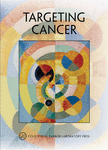|
LXXXI: Targeting Cancer 2016 |
|
|

|
Guillermo Burgos-Barragan, Suzanne Said, and Jouliana Sadek SYMPOSIUM SYNOPSIS LIST OF PARTICIPANTS CONTENTS OF SYMPOSIUM VOLUME PHOTOGRAPHS PUBLISHED VOLUME PRESENTER INTERVIEWS  |
Targeting Cancer
June 1 - 6, 2016
Symposium Synopsis
Organizers: Scott Lowe, Kornelia Polyak, David Stewart, Bruce Stillman & Eileen White
Cancer is a deadly disease that will afflict one out of every two to three people in the developed world in their lifetime. Recent years have produced transformative discoveries revealing the mechanisms behind the development and progression of cancer and the implementation of targeted cancer therapies in the clinic based on these discoveries. We have defined the mutational landscape of many cancers and with that the incipient driver mutations. Sophisticated and elegant models now exist for many types of cancer, and we understand in great detail the changes in signaling and gene expression that promote cancer and have begun to unravel the antitumor immune response. Cell death and survival mechanisms used by cancer cells have been identified and therapeutically exploited, and we have revealed processes that dictate cancer cell growth, repair, and proliferation and have the means to inhibit these processes. We have also seen advances in the mechanistic understanding, implementation, and deployment of cytotoxic cancer therapy. Collectively these advances are improving both the quality of life and overall survival of cancer patients.
The decision to focus the 81st Cold Spring Harbor Laboratory Symposium on Targeting Cancer reflected the enormous research progress achieved in recent years and provided a broad synthesis of the current state of the field, setting the stage for future discoveries and applications. Implications of how the underlying science can drive improvements in diagnostic, prognostic, and therapeutic approaches were a major theme throughout the Symposium. Previous Symposia that have included significant aspects of cancer research have occurred on a roughly five- to 10-year cycle, notably but not limited to Genes and Mutations (1951); Cellular Regulatory Mechanisms (1961); Transcription of Genetic Material (1970); Tumor Viruses (1974); Viral Oncogenes (1979); The Cell Cycle (1991); The Molecular Genetics of Cancer (1994); Biological Responses to DNA Damage (2000); and Molecular Approaches to Controlling Cancer (2005).
Major themes and topics highlighted at the 2016 Symposium included Cancer Genes and Genomes (genome stability, chromatin, epigenetic regulation); Cancer Pathways (signaling pathways, networks); Tumor Cell Biology (cells of origin, metabolism, autophagy, senescence); Cancer Growth & Progression (microenvironment, stroma/niche, tumor evolution, metastasis); Innate & Adaptive Immune Responses (inflammation, immunotherapies); and Enabling Technologies (single-cell sequencing, imaging, genetic screens, genome editing, organoids). Opening night speakers included Elaine Mardis (Nationwide Children’s Hospital Research Institute) on translating cancer genomics into therapeutic target identification and vaccine design, Craig Thompson (Memorial Sloan Kettering Cancer Center), who spoke on the emerging treatment paradigm exploiting cancer metabolism, Carl June (University of Pennsylvania) on the use of genetic editing to generate synthetic lethal T cells, and Tyler Jacks (David H. Koch Institute for Integrative Cancer Research at MIT), who addressed engineering the cancer genome. Charles Sawyers (HHMI/Memorial Sloan Kettering Cancer Center) delivered an outstanding Dorcas Cummings Lecture on “Reflections on Precision Medicine and Cancer Moonshots” for Laboratory friends, neighbors, and Symposium participants prior to the annual Symposium dinners. Joan Brugge (Harvard Medical School) provided a masterful Summary at the conclusion of the Symposium immediately prior to the final banquet.
This Symposium was attended by almost 490 scientists from universities around the country and internationally, and the program included 55 invited presentations and more than 200 poster presentations. To disseminate the latest results and discussion of the Symposium to a wider audience, attendees were able to share many of the Symposium talks with their colleagues who were unable to attend using the Leading Strand video archive. A collection of interviews by Gemma Alderton (Nature Reviews Cancer), Paula Kiberstis (Science), Mirna Kvajo (Cell Press), Elizabeth McKenna (Cancer Discovery/AACR), Richard Sever (CSHL Press), and Jan Witkowski (CSHL Banbury Center) with leading experts in the field were arranged during the Symposium and distributed as free video from the Cold Spring Harbor Symposium interviews website.
We thank Val Pakaluk, Mary Smith, Ed Campodonico, and his staff in the Meetings & Courses Program for their assistance in organizing and running the Symposium, and John Inglis and his staff at Cold Spring Harbor Laboratory Press, particularly Inez Sialiano, Jan Argentine, Kathleen Bubbeo, and Denise Weiss. Major support was provided by the CSHL-Northwell Health Partnership, with additional support provided by Genomic Health and Fluidigm. Financial support from the corporate sponsors of our meetings program is essential for these Symposia to remain a success, and we are most grateful for their support.
Symposium Organizers
Scott Lowe, Memorial Sloan Kettering Cancer Center
Kornelia Polyak, Dana-Farber Cancer Institute
David Stewart, Cold Spring Harbor Laboratory
Bruce Stillman, Cold Spring Harbor Laboratory
Eileen White, The Rutgers Cancer Institute of New Jersey
Editors
David Stewart, Cold Spring Harbor Laboratory
Bruce Stillman, Cold Spring Harbor Laboratory
Search images: